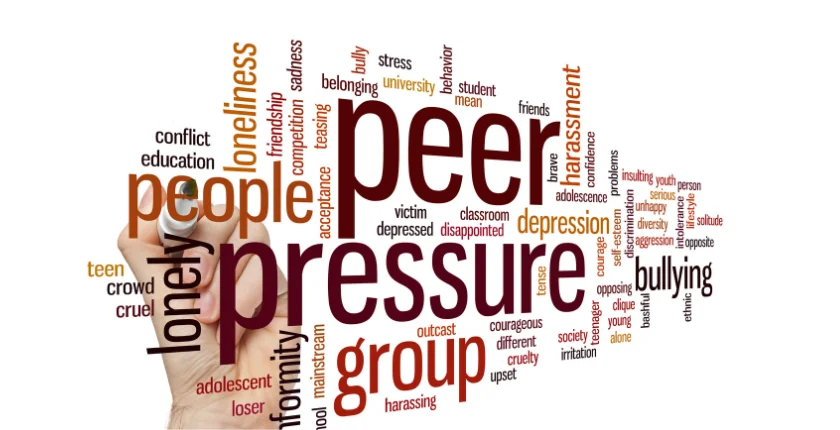Table of Contents
Introduction
In an ultra-modern, increasingly more diverse world, the function of Diversity Peer Educators has received vast significance. These individuals play a pivotal function in promoting inclusivity, understanding, and social justice on university campuses and past. This comprehensive guide will take you through the whole lot you want to recognize about Diversity Peer Educators, from their roles and responsibilities to the steps to end up one.
What is a Diversity Peer Educator?
A Diversity Peer Educator is a pupil or individual who is educated to educate, endorse for, and assist variety and inclusion efforts on campus. They function as bridges between one-of-a-kind groups with and intention of creating a greater inclusive environment for all.
Why are Diversity Peer Educators important?
Diversity Peer Educators are essential because they contribute to fostering a campus culture that values diversity, equity, and inclusion. They help create safe spaces for dialogue, educate peers about different perspectives, and work towards dismantling systemic biases.
What are the benefits of becoming a Diversity Peer Educator?
Becoming a Diversity Peer Educator may be a transformative enjoy. It not handiest allows you to make a fantastic effect on your campus but additionally gives private and expert benefits inclusive of:

- Enhanced verbal exchange and management capabilities
- Deeper know-how of social justice issues
- Building a different organization of companions and partners
- Opportunities for non-public boom and self-discovery
What do Diversity Peer Educators do?
Diversity Peer Educators wear many hats and engage in a variety of activities to promote diversity and inclusion:
1. Facilitate educational workshops and discussions
Diversity Peer Educators lead workshops and discussions on a wide range of topics associated with diversity, equity, and inclusion. These sessions offer a platform for open speech, critical wondering, and studying among college students and network participants. Through interactive sports, they inspire members to discover their very own biases, and task stereotypes, and develop deeper information about social troubles.

2. Create and implement diversity initiatives on campus
These educators are at the leading edge of making plans and executing a range of initiatives on their university campuses. They organize events, attention campaigns, and cultural celebrations that foster a feeling of belonging for all college students. By highlighting one-of-a-kind cultures, traditions, and views, they goal to interrupt obstacles and sell team spirit within the campus network.
3. Mentor and support students from diverse backgrounds
Diversity Peer Educators serve as mentors and allies to students from underrepresented backgrounds. They provide steerage, lend a listening ear, and provide assets to help their friends navigate the challenges they may face in a brand-new environment. This mentorship now not handiest assists students academically but also contributes to their typical well-being.
4. Advocate for social justice and inclusion
Advocacy is a key aspect of a Diversity Peer Educator’s role. They actively work to address systemic issues of inequality and discrimination within their institutions. This may involve collaborating with the administration to develop inclusive policies, organizing rallies and protests, or participating in community outreach programs to promote social justice.
5. Promote diversity and inclusion in the curriculum
Diversity Peer Educators often collaborate with faculty members to infuse diversity and inclusion into the curriculum. They may suggest changes to course content, recommend diverse reading materials, or assist in designing inclusive teaching methods. This helps ensure that students receive a well-rounded education that reflects the richness of our diverse world.

6. Organize cultural and diversity events
To celebrate diversity, Diversity Peer Educators organize cultural events, diversity panels, and awareness campaigns. These events showcase the richness of various cultures, religions, and backgrounds and encourage a sense of pride in one’s identity while fostering a spirit of acceptance and unity.
Steps to Become a Diversity Peer Educator:
| Steps to Become a Diversity Peer Educator |
|---|
| 1. Eligibility requirements |
| – Check your college or organization’s eligibility requirements. |
| – Typically includes being a student in good academic standing. |
| 2. Application process |
| – Complete the application process. |
| – This may involve submitting an application form and an essay. |
| – You may also be required to attend an interview. |
| 3. Training and development |
| – Once selected, you’ll undergo comprehensive training. |
| – Training covers topics such as cultural sensitivity, communication skills, and conflict resolution. |
Skills and qualities of a successful Diversity Peer Educator
To succeed in this job, you ought to have the following abilities and characteristics:
- Communication abilities: The potential to articulate thoughts and facilitate effective discussions.
- Empathy and compassion: A real information of others’ experiences and challenges.
- Cultural attention and sensitivity: An appreciation for extraordinary cultures and backgrounds.
- Ability to build relationships: The ability to hook up with peers and foster a sense of belonging.
- Commitment to social justice: A determination to advocate for equity and inclusion.
Next Steps
Now that you have a higher insight of what it takes to be a Diversity Peer Educator, it’s time to take the next steps. Whether you’re considering making use of the role or need to aid the efforts of Diversity Peer Educators on your campus, your involvement is vital in constructing a greater inclusive global.

FAQs
Q: What motivates you to become a peer educator?
A: Peer educators are often influenced by the aid of a deep passion for selling diversity and inclusivity. Many are inspired using non-public studies, a desire to create a nice exchange, and a dedication to assisting others recognize and recognize diversity.
Q: What does peer educator mean?
A: A peer educator is someone who educates and advocates on particular subjects, normally within their personal peer group or network. In the context of diversity, a range of peer educators focuses on promoting know-how, attractiveness, and inclusivity amongst peers.
Q: How do I write an application letter for a peer educator?
A: When writing an application letter for a peer educator position, emphasize your passion for diversity and inclusion, relevant experiences, and your commitment to making a positive impact. Highlight your communication skills and ability to connect with peers.




